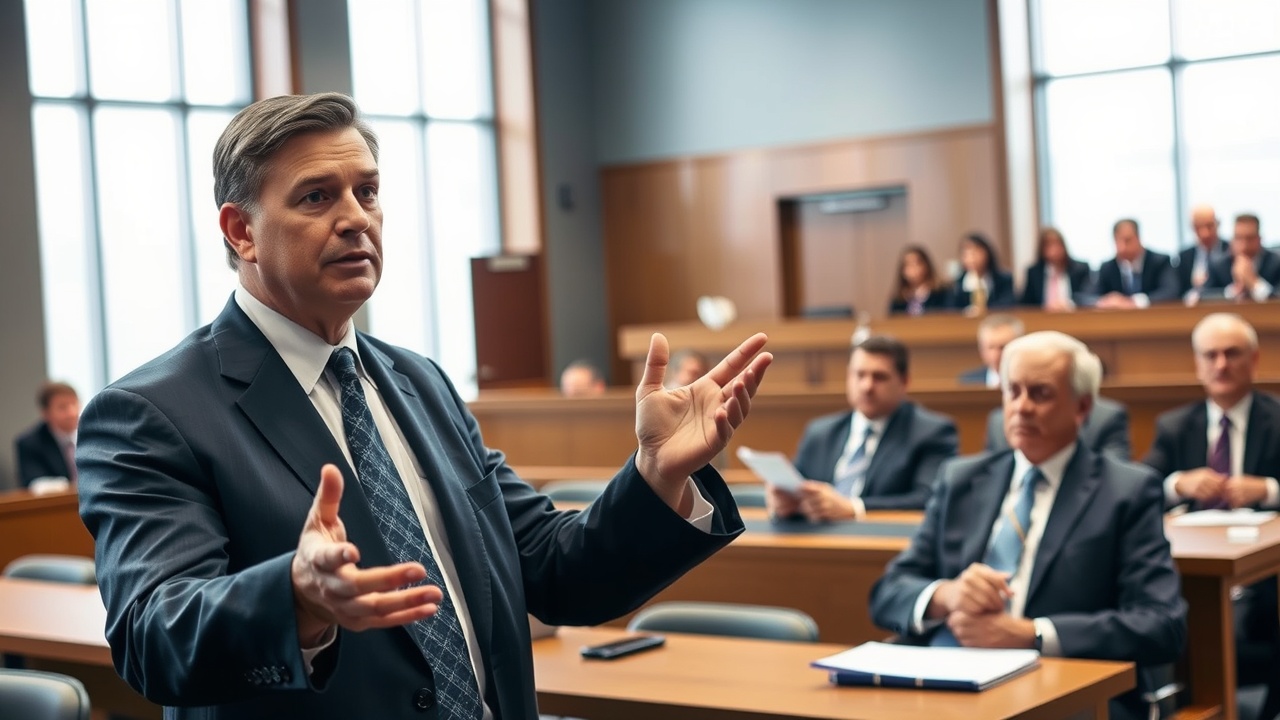Closing Arguments in Hockey Canada Sexual Assault Trial
In London, Ontario, the defense team in the Hockey Canada sexual assault trial has initiated closing arguments, characterizing the complainant’s testimony as riddled with significant flaws that undermine her reliability. The legal representatives claimed she has adapted her story to secure sympathy from her family and friends, while also pursuing a civil lawsuit that concluded with a settlement in 2022.
Charges and Incident Details
Five players, including Michael McLeod, Carter Hart, Alex Formenton, Dillon Dubé, and Cal Foote, face sexual assault charges connected to an incident that allegedly occurred in June 2018. The complainant, identified as E.M. due to a publication restriction, asserted that she was assaulted for several hours in a hotel room where the players were staying for a Hockey Canada event celebrating their gold medal win at the 2018 World Junior Championship.
In addition to the sexual assault charges, McLeod faces an additional count for supposedly encouraging his teammates to engage in sexual acts with E.M. All defendants have pleaded not guilty.
Defense Strategies and Claims
During the trial’s concluding week, David Humphrey, acting on McLeod’s behalf, notably stated that the defense has abundant material to challenge the credibility of E.M.’s account, referring to it as a “cornucopia of credibility and reliability concerns.”
E.M.’s account described meeting McLeod at a bar, which led to a night of drinking and consensual sexual activity before she reported feeling overwhelmed by multiple men in the hotel room, where she alleged she was coerced into various sexual acts.
Defense narratives indicated that the complainant later communicated through group text messages that contradicted her claims, suggesting that she was the one who initiated these sexual encounters, rather than being pressured.
Humphrey criticized E.M. as a “flawed witness,” claiming that her testimony was inconsistent and unreliable. He argued that she possibly wished to avoid acknowledging her own actions during that night. This, he posited, led to her creating a narrative that misrepresented the events to her mother, which he suggested had escalated into the criminal proceedings that followed.
He highlighted discrepancies, such as E.M.’s demeanor in her initial police interview, where she did not express the fear she claimed to feel later. Humphrey suggested this fear was later manufactured to support her multi-million dollar lawsuit against Hockey Canada, which was settled shortly after its filing, a factor noted by Justice Maria Carroccia as unusually rapid.
Evidence and Challenges
Humphrey referenced McLeod’s behavior during police interviews where he failed to provide full details regarding text messages inviting his teammates to a sexual encounter. He disclosed that McLeod sent a group text indicating he was expecting a limited number of players and was surprised by the higher turnout.
The defense maintained that two videos recorded that night were critical to supporting McLeod’s claims of consent, with E.M. allegedly affirming her comfort at the time, although she later expressed a lack of memory about these recordings. The defense argued this situation was complex, with Humphrey noting concerns about alcohol and the passage of time affecting witness recollections.
Despite the troubling nature of the events discussed, Humphrey urged the court to focus solely on the legal aspects rather than the moral implications of the individuals’ behaviors during the incident.




